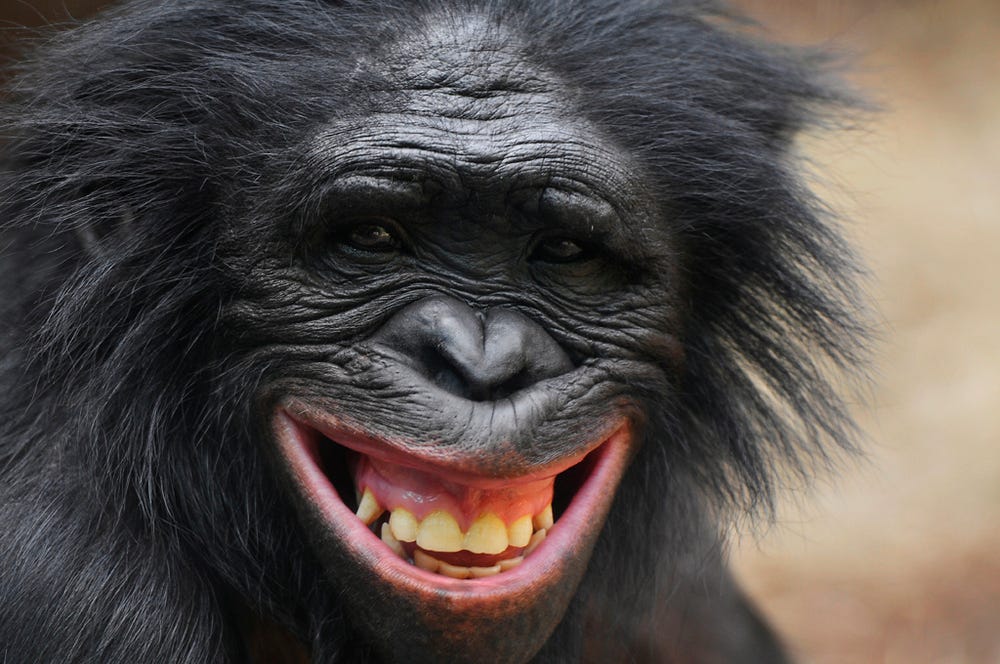
Wiki / Empathie
Inhaltsverzeichnis: (verbergen)

Rote Rosen |
|
With empathy I'm fully with them, |
|
Ein Fuhrmann misshandelt sein abgetriebenes Ross dermaßen mit der Peitsche, dass die Adern des Tieres springen und die Nerven zittern. Einer der untätig, obschon mitleidig Herumstehenden, fragt, was geschehen soll. Die prag- matische Antwort lautet: "Reißt dem Wüterich die Peitsche aus der Hand."
Ein Mitzeuge wirft ein:
"Dieser gutgenährte Gaul ist einfach nur störrisch und tückisch. Nur weil er einen mit Stroh beladenen Wagen zieht, will auf sich aufmerksam machen."
Der geistesgegenwärtige Zeuge besteht darauf:
"Wie dem auch sei, reißt erst mal dem Wüterich die Peitsche aus der Hand."
|
| Jakob Wassermann (1873-1934) deutsch-jüdischer Schriftsteller, Mein Weg als Deutscher und Jude, S. Fischer Verlag, Berlin, 1921, Deutscher Taschenbuch Verlag (dtv), 5. Januar 1994, Project Gutenberg, E-Buch, 29. Dezember 2005 |
Individuell und kollektiv gilt es, der Gewalt und ihrer ideologischen Rechtfertigung Paroli zu bieten.
Wer die zentrale Rolle des Mitgefühls im menschlichen Leben erkennt, weiß dass die Ge-
schichte menschlicher Zivilisation das Ringen um Empathie darstellt. Wenn Empathie zu Selbstmitleid pervertiert, dient dies dem Hass auf das Leben, der sich nur schwer auflösen lässt. Jeder Mensch ist mit Empathie geboren, die auch unter widrigsten Umständen auf-
steigen kann.
Wer sich mit den Unterdrückern identifiziert, ist unfähig, sich vor dem innewohnenden offenen oder verdeckten Hass zu schützen. Die Sehnsucht nach Liebe wird von der Sehnsucht nach [falscher] Autorität überschattet.
Die Idealisierung von Tätern dient dazu, einen vor Angst und Terror bewahren. Der zivilfeige Mensch fühlt sich schuldig (sündig), weil er ursprünglich die Wahrheit erkennen konnte. Zu-
gleich streitet er diese Sünde fortwährend ab, indem er andere zu Opfern macht und sie dafür bestraft, dass er selbst Opfer geworden ist.
Solange Wohlstand und scheinbare Ordnung herrschen, wird das innere Opfer in Schach gehalten. Bei wirtschaftlicher Not und politischem Chaos taucht der Hass gegen sich selbst wieder auf und wird auf "Feindbilder" abgewälzt. Entsprechend des Quantums an nicht empfangener Liebe in der Kindheit wird das Böse gestattet. Vielen gelingt es nicht, eine eigene Identität zu entwickeln, stattdessen identifizieren sie sich mit jenen, die andere unter-
werfen.
| Siehe auch: ► Mitgefühl und ► Sehnsucht und ► Opferhaltung und ► Gewalt und ► Soziologie |
| |||||||||||||||||||||||||||||||||||||||||||||||||||||||||||||||||||
| Buchempfehlung: ► Rutger Bregman (*1988) niederländischer Historiker, Aktivist, Autor, Im Grunde gut. Eine neue Geschichte der Menschheit, Rowohlt Verlag, 10. März 2020 |
| Siehe auch: ► Gut und Böse |
| See also: ► Innate goodness ⇔ innate badness ► Jen science on humanity – Dacher Keltner ► Audio and video links (engl.) – Dacher Keltner |
| See also: Innate goodness ⇔ innate badness |
Persönliche Bekenntnisse
Appell
|
Personal avowals
Reference: Blog entry by Daniel Goleman (*1946) US American psychologist, science journalist for the The New York Times, author, Three kinds of empathy: cognitive, emotional, compassionate, presented by the blogspot heartmanity.com, 12. June 2007

Calling
Insights
Empathy is expressed via
a) the body channel: as the ability to understand and share the feelings of another and
b) the cognitive channel: as the ability to take the perspective of another.
Minute 9: Enlightenment philosophers of the 18th/19th century saw humans as materialistic, self interested, utilitarian, pleasure seeking, and libido driven.
| |||||||||||||||
|
Personal avowals
|
| See also: ► Vulnerability: Quotes by Brené Brown and ► Shame: Quotes by Brené Brown ► About setting boundaries |
| Siehe auch: ► Zitate über Scham – Brené Brown |
| |||||||||||||||||
| |||||||||||||||||
|
| References: ► Removed blog entry by Daniel Goleman (*1946) US American psychologist, science journalist for the The New York Times, author, Three kinds of empathy: cognitive, emotional, compassionate]], presented by the blogspot danielgoleman.info, 12. June 2007 ► Blog article There Are Actually 3 Types of Empathy. Understanding the 3 types of empathy can help you build stronger, healthier relationships., presented by the blogspot Inc.com, Justin Bariso, author, 19. September 2018 |
| ||||||||||||||||||||||||||||||
| Source: ► Video presentation including Q&A by Brené Brown, Ph.D., LMSW (*1965) US American shame, vulnerability, empathy researcher, Graduate College of Social Work, University of Houston, public speaker, author, RSA Replay – The Power of Vulnerability, presented by RSA Animate RSA Royal Society for the encouragement of Arts, Manufactures and Commerce, London, United Kingdom, YouTube film, minutes 31:10, 18:02, 20:10, 31:55, 1:01:27 duration, recorded and posted 4. July 2013 |
| See also: ► Correlating the right hemisphere with the left hemisphere of the brain |
| Siehe auch: ► Gegenüberstellung von Patristik und Matristik |
| ||||||||||||||||||||||||||||||||||||
| Source: ► Judith Orloff, M.D., Ph.D. (*1951) US American assistant professor of psychiatry, UCLA, empath, dying companion, lecturer, author, The Empath's Survival Guide. Life Strategies for Sensitive People, US American multimedia publishing company Sounds True, 4. April 2017 |
| See also: ► Intuition and ► Sensitivity |
| ||||||||||||||||||||||||||||||||||||||||||||||||||||||||||||||
| Source: ► Article If You Have These 30 Traits, Consider Yourself An Empath, presented by the publication Your Tango, Christel Broederlow, writer, 16. June 2020 |
| ||||||||||||||||||||
| Sources featuring Roman Krznaric, Ph.D., Australian-British professor of sociology and politics, Cambridge University, cultural thinker, founding faculty member of The School of Life, London, empathy expert and advisor to organizations (Oxfam and United Nations), author ► Article Six Habits of Highly Empathic People, presented by the free online publication Greater Good Magazine, UC Berkeley, California, 27. November 2012 ► Article Six Habits of Highly Empathic People, presented by the publication Daily Good, syndicated from the Greater Good Science Center, UC Berkeley, 25. August 2013 |
| Reference: en.Wikipedia entry ► Mirror neuronal empathy |
| See also: ► Enhancing collective intelligence by social perceptiveness (EI) and equal participation ► Interest and ► Listening and ► Trust and ► Creativity and ► Inspiration and ► Transformation |
|
| |||||||||||||||||||||||||||||||||
| Source: ► Audio interview with Daniel Pink danpink.com (*1964) US American motivational speaker, chief speech writer of US vice president Al Gore (1995-1997), visionary author, Dan Pink on How Half Your Brain Can Save Your Job, presented by The Library of Economics and Liberty ECONTALK, host Russ Roberts, 1:07:13 duration, aired 11. June 2007 |
| See also: ► Thinking and ► Fairy tales and ► Benignity and ► Play and ► Purpose and ► Integration |
| |||||||||||||||||||||||||||||||||||||||||||||||||||||||||||||||||||
| Book recommendation: ► Rutger Bregman (*1988) Dutch historian, activist, author, Humankind. A Hopeful History, Generic, 31. December 2019, 19. May 2020 |
| See also: ► Jen science on humanity – Dacher Keltner ► Good ⇔ Evil ► Audio and video links (engl.) – Dacher Keltner ► Incomplete timetable of paradigmal shifts ► Salvation namely ► Salvationism: Problematic Redeemer ◊ Messiah ◊ Savior complex ► Quotes on indebtedness (original sin) – Joseph P. Farrell |
| Siehe auch: ► Angeborenes Gutsein ⇔ angeborene Schlechtigkeit |
Empathy is expressed via two channels:
Dutch Primatologist Frans de Waal, Ph.D. (1948-2024) performed a "Fairness study" on benign, self-aware animals. He
and his colleague Sarah Brosnan tested the sense of altruism and morality with chimpanzees (apes), dogs and birds, and elephants.
Note on the mirror self-recognition: Next to humans do great apes, dogs, elephants, European magpies (birds), individual owls, bottlenose dolphins, orcas, have the ability to recognize themselves in the mirror.
When two capuchin monkeys – coopeative by nature and considered as the most intelligent New World monkeys – each received a cucumber treat, they performed the requested task in the lab many times in a row. If one of them was rewarded with higher valued grapes and the other one merely with cucumber – the latter felt cheated and soon started to protest by either refusing to further comply
or to eat the cucumber.

Monkeys will accept and eat a piece of cucumber whenever they receive it, but not when they witness their partner getting a better deal. This reaction known as "inequity aversion" refutes the theory of profit-maximizing under all circumstances made by economy theorists who claim that greedy humans would invariably take whatever they can get.
Book review: Our Inner Ape: A Leading Primatologist Explains Why We Are Who We Are, presented by The Science Shelf, Fred Bortz, 21. November 2013
| Sources featuring Frans de Waal, Ph.D. (1948-2024) Dutch US American Candler professor of psychology and primate behavior, director of Living Links, Yerkes National Primate Research Center, Emory University, Atlanta, Georgia, biologist, ethologist, speaker, author ► Q&A Frans de Waal Answers Your Primate Questions, presented by the publication Freakonomics, 7. May 2008 ► Video presentation Moral behavior in animals, presented by TEDx Peachtree Talks, minute 13:11, 16:34 minutes duration, filmed November 2011, posted April 2012 |
| See also: ► Animals and ► Politics and ► Compassion and ► Ethics |
Links zum Thema Empathie / EmpathyLiteratur
Literature (engl.)
Externe Weblinks
External web links (engl.)
Rats are empathetic animals who care to free their trapped comrades. They are willing to share uneven food supplies. Female rats top
Study linked psychopathic traits and higher cognitive empathy levels to people who are likely to troll.
1. Is it actually my fault?
Audio- und Videolinks
Selbstverständnis – als Basis für Empathie – wird durch gute frühkindliche Bindung und Beziehungsspiegelung erworben. Gestörte Empathie verursacht narzisstische Störungen, die wiederum Empathie auslöschen. Durch die narzisstischen Defizite fehlt Empathie für individuelle Konflikte und soziale Ungerechtigkeiten. Empathiemangel ist die Quelle aller Fehlentwicklungen.
Audio and video links (engl.)
Empathic therapists have the highest success rate with alcohol addicts.
Empathy and mirror neurons
Effects of compassion vs. cynicism on the immune system; Hoffman's precursors to empathy, gratitude and the empathic leap
Audio and video links (engl.) – Brené Brown
Audio and video links (engl.) – Frans de Waal
Europeans are appalled by the extent of Social Darwinism in United States (as promoted by philosopher, sociologist Herbert Spencer (1820-1903) Minute 0:38
Gender differences in regard to empathy Minute 11:54
Issues of cooperation, reconciliation, sense of fairness, rudiments of morality, civility to heart
|
Englisch Wiki
Hawkins
1 Paulus von Tarsus lehrte die Erbsünde in: Römer 3:10-18, Römer 3:23-24, Römer 5:8-19, Römer 6:23, Römer 7:5-23, Römer 8:7, Epheser 2:1-3, 1 Korinther 15:22; Jesus lehrte, dass Kinder nicht als Sünder geboren werden: Markus 10:13-16, Matthäus 18:3 und Lukas 18:16-17. ⇑
2 Die beste aller möglichen Welten ⇑
3 Vorlesung Faith and Force. The Destroyers of the Modern World, Yale University, 17. Februar 1960, veröffentlicht als Pamphlet von dem Nathaniel Branden Institute, 1967 ⇑
4 Buchempfehlung Born to Be Good. The Science of a Meaningful Life, W.W. Norton & Company, 12. Januar 2009 ⇑
5 Paul of Tarsus taught the original sin in: Romans 3:10-18, Romans 3:23-24, Romans 5:8-19, Romans 6:23, Romans 7:5-23, Romans 8:7, Ephesians 2:1-3, 1 Corinthians 15:22; Jesus taught that the children are not born sinners: Mark 10:13-16, Matthew 18:3 and Luke 18:16-17 ⇑
6 Lecture Faith and Force. The Destroyers of the Modern World, lecture, Yale University, 17. February 1960, published as a pamphlet, Nathaniel Branden Institute, 1967 ⇑
7 Born to Be Good. The Science of a Meaningful Life, W.W. Norton & Company, 12. January 2009 ⇑